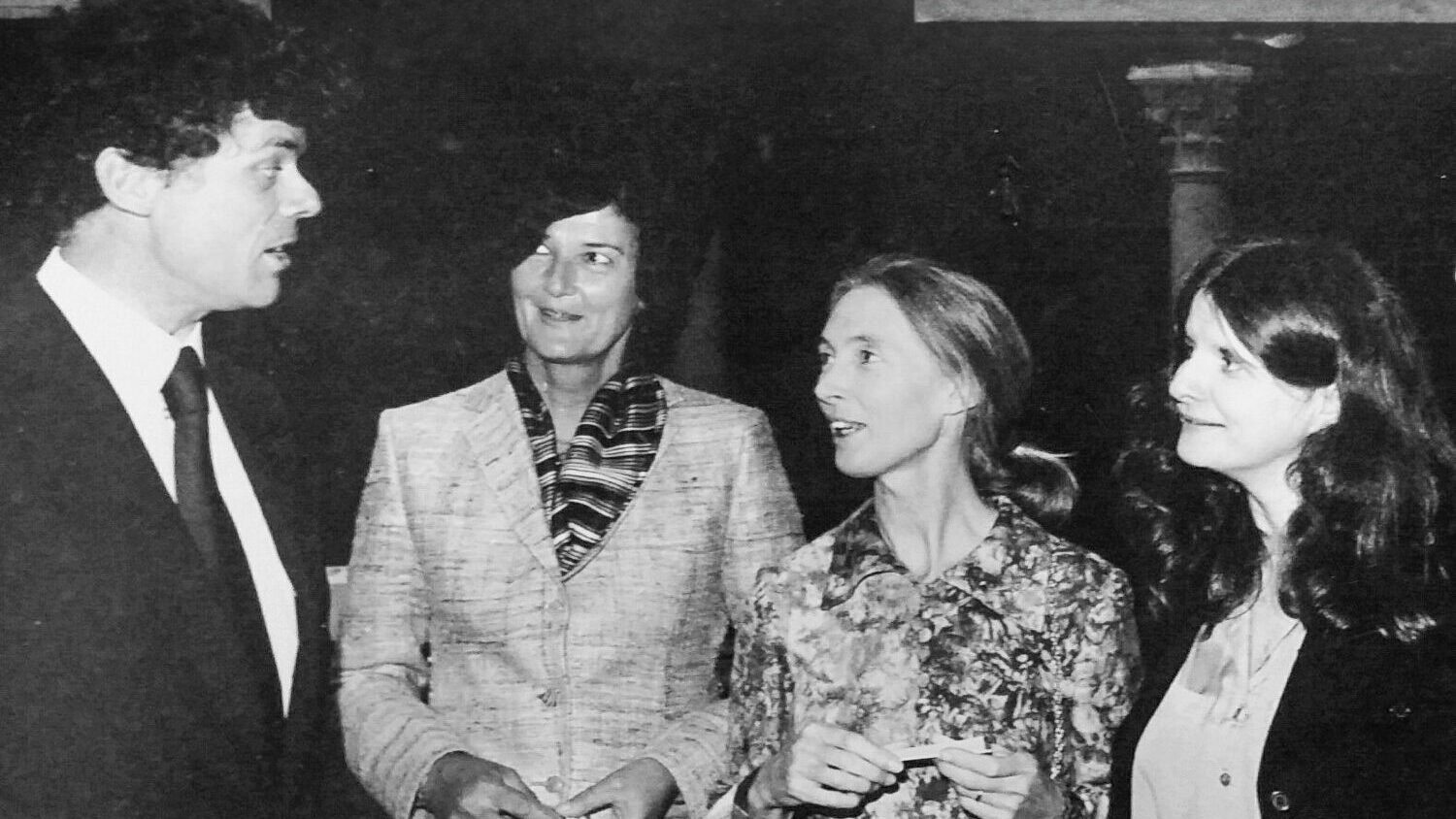
by Evan Hadingham
“We stand today at a very important crossroads,” said Louis Leakey, speaking in 1971 at a symposium that was broadcast live by KQED, San Francisco’s public television station. “Either man will, in a very short time, face inevitable destruction and, instead of another milestone in progress, we shall erect a tombstone to humanity; or, if we take the right turning now, if we insist on the things that reason tells us we must insist upon, we can erect another milestone—a milestone that will lead us and our children, and our grandchildren, and many generations to come, in the direction of another 20 million years of progress.”
As Gordon Getty watched the speech on KQED, he was captivated by Leakey’s message and his account of the extraordinary fossil discoveries that he and his wife, Mary, had recently made in East Africa. At the time, Getty was 37. The fourth child of oil tycoon J. Paul Getty, he was born in Los Angeles and raised in San Francisco, where he attended college. Gordon would eventually pursue many interests as a businessman, philanthropist, wine entrepreneur, and acclaimed composer, including operas that have been performed around the world.
Meeting Louis
A few months after the symposium, Gordon and his wife Ann met Louis Leakey at a social event in San Francisco; Gordon recalls him as “a live wire—100% energy—with small patience for small talk.” The Gettys soon became ardent supporters of the recently formed Leakey Foundation along with two other couples who were among their closest friends: Barbara and Ron Pelosi and Nancy and Paul Pelosi. (More than a decade would elapse before Nancy Pelosi entered politics and began her rise to the top of the Democratic Party.)
1973 proved to be a pivotal year for the foundation’s activities. That year, Gordon and Ann became trustees, and grants were given to Louis Leakey’s “Trimates”—Jane Goodall, Dian Fossey, and Biruté Mary Galdikas. In December, the foundation staged a landmark two-day symposium titled ‘In Search of Man’ in San Francisco’s Palace of Fine Arts, featuring Mary Leakey, Jane Goodall, Dian Fossey, Raymond Dart, Clark Howell, and others. The event’s main organizers were Nancy and Barbara Pelosi, whom Gordon remembers as “very effective” in promoting it. All seats in the 1,000-seat auditorium were sold out.
Elated by this success, the Gettys and Pelosis began planning further symposia that would tour other U.S. cities. Barbara recalled that organizing the symposia was “one of Gordon’s greatest enthusiasms” and that he concerned himself with every detail, from writing promotional brochures to hauling sacks of mail to the post office to make sure of their prompt delivery. His efforts greatly strengthened The Leakey Foundation’s focus on public educational outreach, which, through its symposia, lectures, web articles, and Origin Stories podcast, remains a crucial part of its mission today.
Over the next decades, the Gettys’ involvement with research and fieldwork deepened. Ann Getty began personally funding expeditions in Ethiopia and renovations at the National Museum in Addis Ababa. She joined Tim White’s field team that excavated the 4.4-million-year-old fossil skeleton of Ardipithecus in the blistering heat of Ethiopia’s Middle Awash region.
Meanwhile, Gordon was elected Chairman of the Board of The Leakey Foundation in 1980. His consistent support provided stability and growth for the small nonprofit’s finances, enabling it to offer predictable, long-term funding for research that was hard to obtain anywhere else. He directly supported the work of many of the field’s most important scientists, such as Jane Goodall at Gombe, Donald Johanson and Bill Kimbel at Hadar, Ethiopia, and Sileshi Semaw and Michael Rogers at Gona. His underwriting of the Baldwin Fellowships gave a crucial jump-start to the careers of future leaders such as Berhane Afsaw, Emma Mbua, Job Kibii, and others.
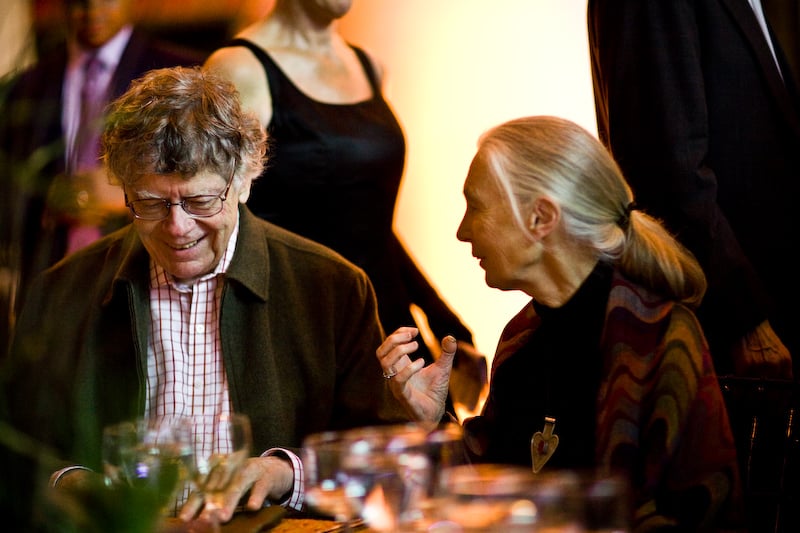
Sticking to the mission
Over the years, The Leakey Foundation has focused on funding relatively small-scale research and fieldwork projects spanning various disciplines. “We retain the same specialties, and we’re still a midwife,” says Gordon. “We don’t make huge grants and we prefer to support new startups in the research.” Occasionally, initiatives have surfaced to redirect that mission. One such proposal came from Richard Leakey in 1973. Leakey proposed that the foundation should branch off to establish a new facility in Kenya dedicated to the study of ‘fossil man’ and should drop support for primate studies.
Gordon successfully argued that the foundation should reject the proposal and continue supporting a broad spectrum of research, reflecting Louis Leakey’s multifaceted interests. “I’ve always advised against that kind of change,” he says. “We should try to stay in territory that we understand because if you expand into more fields, you need more experts. As it is, we have most of the world’s authorities on human origins—they’re either on our Scientific Executive Committee, or we’re in close relations with them, and we consult with them. And that way, we’re pretty confident that what we grant is worth granting.”
In addition to his endorsement of The Leakey Foundation’s traditional goals, Gordon remains open-minded about its future direction. “We have to adapt to circumstances, like any organization,” he says. “So I have no clear opinion about where the foundation should go—it’s not crystal clear to me. I do think we should continue to focus on rather narrow specialties where we know what we’re talking about, and where other means of support are really hard to find for these kinds of long-term research projects.”
Gordon Getty’s crucial role
“I really can’t over-emphasize the role that Gordon Getty has played in furthering global understanding of human origins and in the evolution of behavior more generally,” notes primatologist Susan Perry. “Louis Leakey must be credited with recognizing how important it is to study extant species—the great apes in particular, but also species that have converged with humans in interesting ways—in order to properly interpret the fossil record and reconstruct the evolutionary history of humans. But Gordon Getty provided important financial backing for Leakey’s intellectual goals, and has been active in supporting individual projects that he himself finds intellectually exciting.”
In 2013, The Leakey Foundation established the Gordon P. Getty Award to recognize the achievements of scientists who show ‘extraordinary originality and dedication in their intellectual and professional pursuits while exemplifying a multidisciplinary approach to human origins research.’ This award is also a fitting acknowledgment of the essential part played by Gordon Getty for over half a century in the foundation’s efforts to bring humanity’s ancient heritage to light.


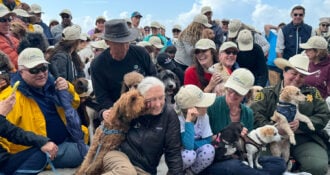
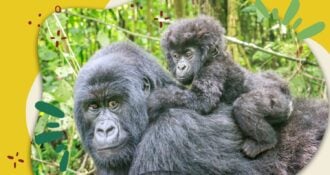

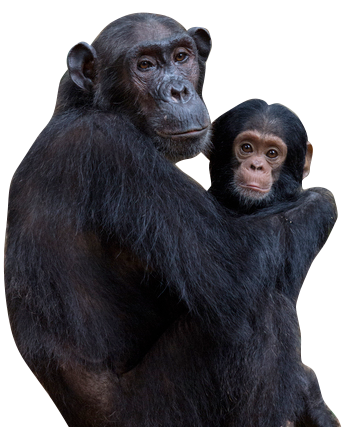
Comments 0